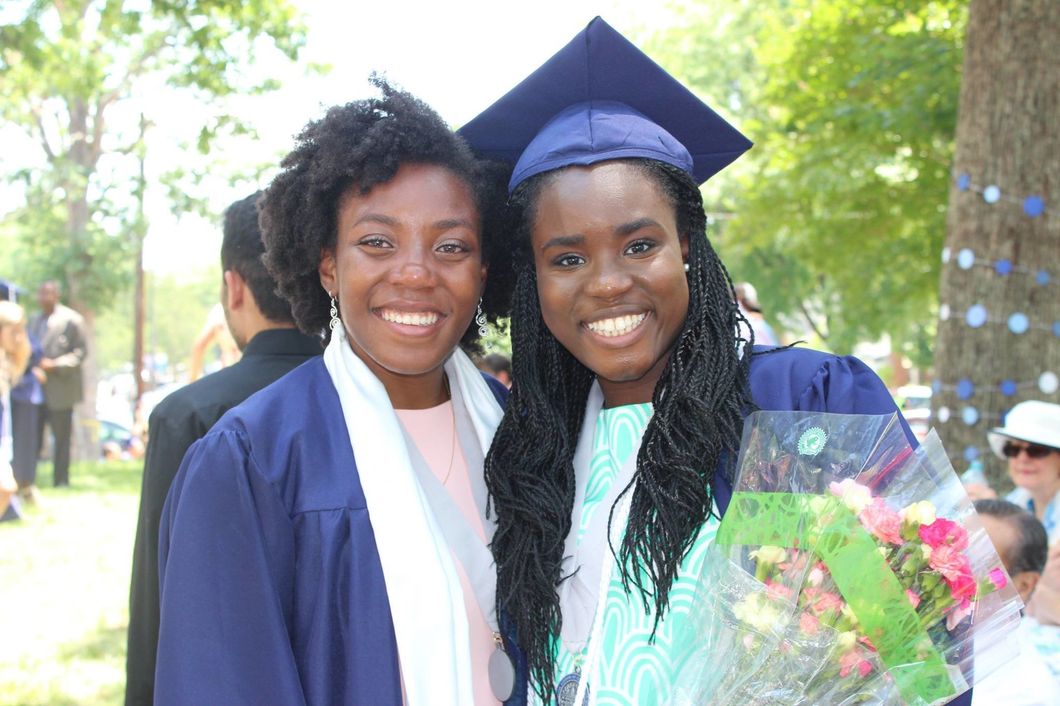My father immigrated from Cameroon to the United States in 1987. He came here with $18 and nothing to his name. He was fortunate enough to have been able to live with his two brothers. However, before he graduated, they had both died — his only immediate family here, gone. My mother came here for my father in 1997. She had been traveling internationally and working all over the world. The United States was her first long-term place of residence since leaving Cameroon to study in Germany.
Before last Monday, the closest blood family member from my mother's side was my uncle, Lionel, who is here for his Master's degree. On my dad's side, it was my cousin, Joseph, who was nowhere to be found.
Life is different when most of your family doesn't live anywhere near you. Familial relationships take on a completely different meaning. 'Aunt' and 'Uncle' doesn't mean your parents' siblings, it means anyone older than you. Parents' cousins, friends, classmates, and the African lady down the street.
The word 'cousin' takes on a different meaning as well. Any kid from the same ethnic group (in my case, the Bassa tribe) is your cousin. As we get older, playing the 'who is actually related to me' game is the norm. The dream my parent's generation has of their kids marrying into the tribe often fades away, since all the eligible kids have grown up thinking we were all related.
In actuality, I have 40 cousins, 23 aunts and uncles, and 13 nieces and nephews. I've only met a handful of them. When you can't pinpoint where your genes come from, your blood type, or your true medical history, your physical existence can be isolating.
Even worse, the emotional scaffolding that comes from having connections with your extended family fade. There's very little openness about our family. Information is held lock and key, and finding the truth about familial relationships is hard, if not impossible.
When you grow up so separated from other families, you become dependent on your own immediate family. Meeting cousins can always be contentious: how to let them break the seal and become a part of our world, having to drop hundreds of dollars just to visit family, whose names we may not remember in a year.
In a structure like this, the importance of friends skyrockets. None of my Cameroonian friends are of my tribe. They don't speak the language, and the parts of Cameroon their family live in are revolting against ours. If we were in Cameroon, we would be enemies. Luckily, we're here. We're representative of how we have more things pushing us together than pulling us apart. Not just other Cameroonians — friends from other African communities help to create a web and safety net of learning, comfort, and understanding. We don't have a choice.
While I don't get to see my blood family, America has given my an additional extended family to help fill in those gaps. People across my country, continent, and the world.
















